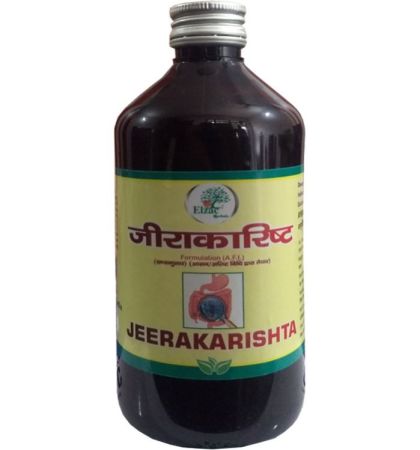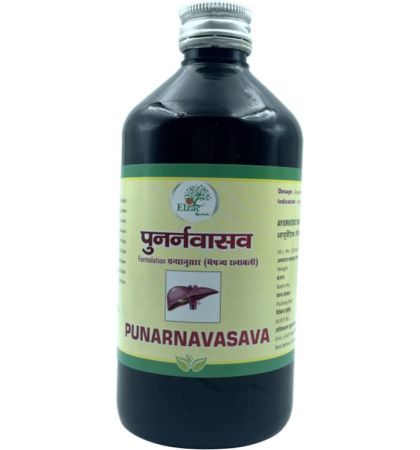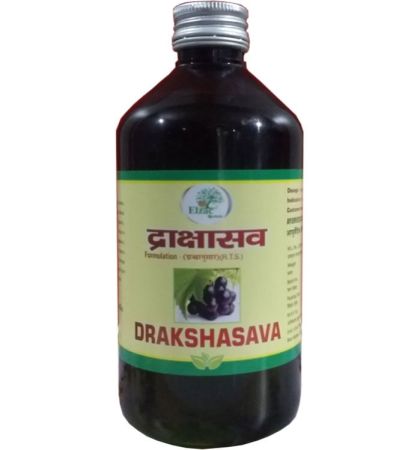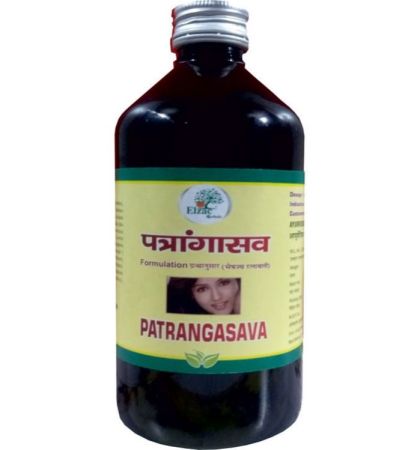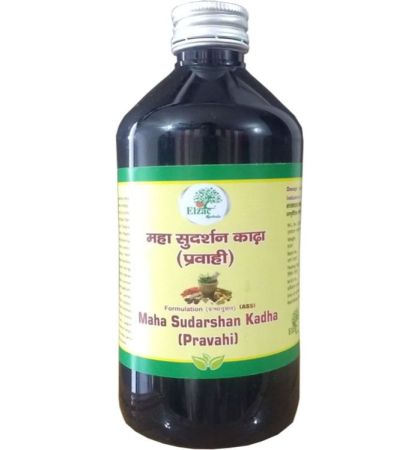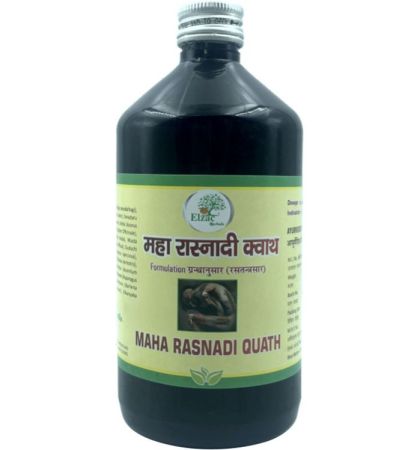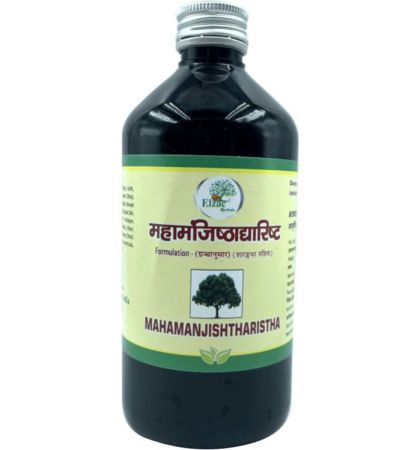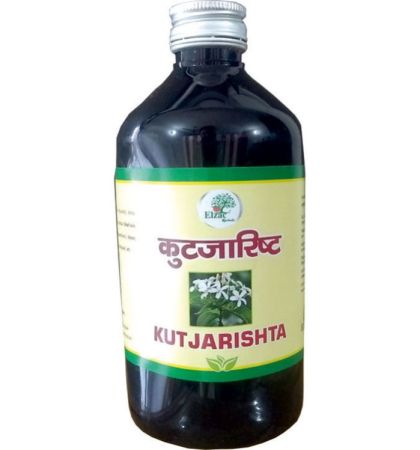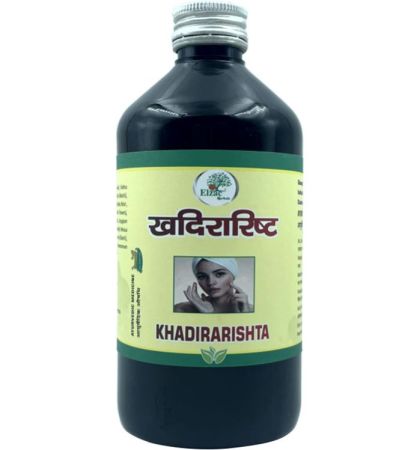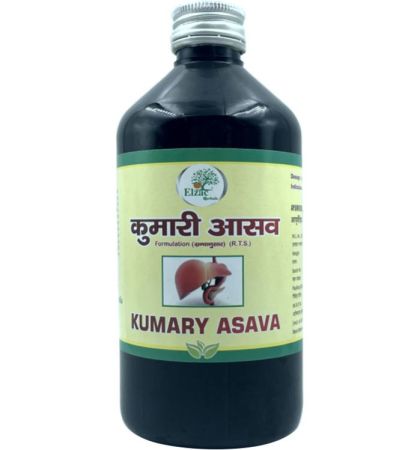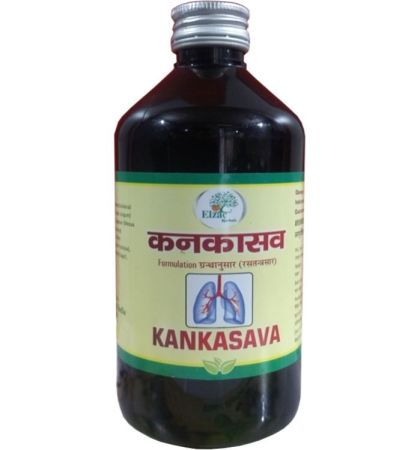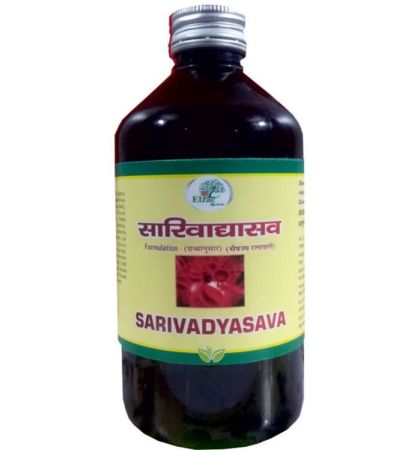


Ashwagandharishta - Ayurvedic Rejuvenating Medicine | Relieves Stress & Anxiety | Vitality & Stamina | Enhances cognitive function | 450 ml
Ashwagandharistha has been used in Ayurvedic medicine for its rejuvenating and adaptogenic properties. Adaptogens are substances that help the body adapt to stress and maintain overall balance and health. In Ayurveda, Ashwagandharistha is believed to support the immune system, enhance cognitive function, and promote physical and mental vitality.
₹245.00 ₹255


Add Faq
Ashwagandharistha has been used in Ayurvedic medicine for its rejuvenating and adaptogenic properties. Adaptogens are substances that help the body adapt to stress and maintain overall balance and health. In Ayurveda, Ashwagandharistha is believed to support the immune system, enhance cognitive function, and promote physical and mental vitality.
Introduction:
Ashwagandharistha is a traditional Ayurvedic herbal formulation that has been used for centuries to promote health and well-being.
The use of Ashwagandharistha can be traced back to ancient Indian texts such as the Charaka Samhita and Sushruta Samhita, which date back to around 1000 BCE. In these texts, Ashwagandharistha is recommended as a tonic for general health and well-being, as well as for the treatment of a wide range of ailments, including anxiety, fatigue, insomnia, and digestive issues.
Ingredients:
Withania somnifera (Ashwagandha), Chlorophytum tuberosum (Mushali white), Rubia cordifolia , (Manjistha), Terminalia chebula (Haritaki), Curcuma longa (Turmeric), Berberis aristata (Daruhaldi), Glycyrrhiza Glabra (Mulethi), Pluchea lanceolata (Rasna), Pueraria tuberose (vidarikand), Terminalia arjuna (Arjuna), Cyperus rotundus (Mustak ), Ipomoea turpethum (Trivrit), Hemidesmus indicus (Sariva), Cryptolepis buchanani (Kali sariva), Santalum album (White Chandan), Pterocarpus santalinus (Red Chandan), Acorus calamus (Vacha), Plumbago zeylanica (Chitrak), Water, Honey,, Woodfordia fruticosa (Dhataki flowers), Zingiber officinale (Ginger dried), Piper nigrum (Black pepper), Cinnamomum zeylanicum (Dalchini), Elettaria cardamomum (cardamom), Cinnamomum tamala (Tejpatta), Callicarpa macrophylla (Priyangu), Mesua ferrea (Nagkesar) etc
Uses of important herbs present in ashwagandharishta are as follow:
- Withania somnifera (Ashwagandha): Ashwagandha is a well-known adaptogenic herb that is believed to help the body cope with stress and support the immune system. It is also used to promote physical and mental vitality, enhance cognitive function, and support overall health and well-being.
- Chlorophytum tuberosum (Mushali white): Mushali white is an herb that is traditionally used to promote strength, stamina, and endurance. It is believed to support the reproductive system, enhance libido, and promote overall vitality.
- Rubia cordifolia (Manjistha): Manjistha is a detoxifying herb that is used to support healthy blood and liver function. It is believed to help purify the blood, support lymphatic drainage, and promote healthy skin.
- Terminalia chebula (Haritaki): Haritaki is a rejuvenating herb that is used to promote digestive health, support healthy elimination, and enhance cognitive function.
- Curcuma longa (Turmeric): Turmeric is a well-known anti-inflammatory herb that is used to support joint health, enhance immunity, and promote healthy digestion.
- Berberis aristata (Daruhaldi): Daruhaldi is an herb that is traditionally used to support healthy liver function and digestion. It is believed to help promote healthy bile flow and support the elimination of toxins from the body.
- Glycyrrhiza Glabra (Mulethi): Mulethi, also known as licorice root, is an herb that is traditionally used to soothe the respiratory system, support healthy digestion, and promote healthy skin.
- Pluchea lanceolata (Rasna): Rasna is an herb that is traditionally used to support joint health and mobility. It is believed to help reduce inflammation and promote healthy circulation.
- Pueraria tuberose (vidarikand): Vidarikand is an herb that is traditionally used to support healthy respiratory function, enhance immunity, and promote healthy digestion.
- Terminalia arjuna (Arjuna): Arjuna is an herb that is traditionally used to support cardiovascular health. It is believed to help support healthy blood pressure and cholesterol levels.
- Cyperus rotundus (Mustak): Mustak is an herb that is traditionally used to support healthy digestion and promote healthy elimination.
- Ipomoea turpethum (Trivrit): Trivrit is an herb that is traditionally used to support healthy digestion and promote healthy elimination.
- Hemidesmus indicus (Sariva): Sariva is an herb that is traditionally used to support healthy skin and promote healthy blood.
- Cryptolepis buchanani (Kali sariva): Kali sariva is an herb that is traditionally used to support healthy respiratory function and promote healthy digestion.
- Santalum album (White Chandan): White Chandan, also known as sandalwood, is an herb that is traditionally used to support healthy skin, promote relaxation, and enhance cognitive function.
- Pterocarpus santalinus (Red Chandan): Red Chandan, also known as red sandalwood, is an herb that is traditionally used to support healthy skin, promote relaxation, and enhance cognitive function.
- Acorus calamus (Vacha): It is a brain tonic and improves memory and concentration.
- Plumbago zeylanica (Chitrak): It improves digestion, enhances metabolism, and helps in the management of digestive disorders.
- Water: It is the solvent used in the preparation of Ashwagandharishta.
- Honey: It is a natural sweetener and also has medicinal properties. It is used in the preparation of Ashwagandharishta to enhance its taste.
- Woodfordia fruticosa (Dhataki flowers): It has anti-inflammatory, analgesic, and wound healing properties. It is used in the management of fever, bleeding disorders, and skin diseases.
- Zingiber officinale (Ginger dried): It is a natural digestive aid and helps in the management of digestive disorders like nausea, vomiting, and bloating.
- Piper nigrum (Black pepper): It improves digestion and helps in the management of respiratory disorders.
- Cinnamomum zeylanicum (Dalchini): It has anti-inflammatory, analgesic, and antimicrobial properties. It is used in the management of respiratory, digestive, and skin disorders.
- Elettaria cardamomum (Cardamom): It is a natural digestive aid and helps in the management of digestive disorders like flatulence and indigestion.
- Cinnamomum tamala (Tejpatta): It has anti-inflammatory, analgesic, and antimicrobial properties. It is used in the management of respiratory, digestive, and skin disorders.
- Callicarpa macrophylla (Priyangu): It has antimicrobial and anti-inflammatory properties. It is used in the management of respiratory, digestive, and skin disorders.
- Mesua ferrea (Nagkesar): It has astringent, analgesic, and anti-inflammatory properties. It is used in the management of bleeding disorders, skin diseases, and respiratory disorders.
Health Benefits:
Ashwagandharistha has been traditionally used in Ayurvedic medicine for a wide range of health issues. Some of the potential health benefits of Ashwagandharistha are:
- Stress and anxiety management: Ashwagandha is known for its adaptogenic properties that help the body cope with stress and anxiety. Ashwagandharistha, which contains Ashwagandha as its primary ingredient, may help in reducing stress and anxiety levels.
- Immune system support: Several herbs in Ashwagandharistha, including Chlorophytum tuberosum (Mushali white), support the immune system and may help in enhancing overall health.
- Digestive health: Ashwagandharistha contains Haritaki, a natural laxative that helps in maintaining digestive health. It also contains other herbs such as Plumbago zeylanica (Chitrak) and Piper nigrum (Black pepper) that support digestive health and may help in managing digestive disorders.
- Joint health: Ashwagandharistha contains herbs such as Rubia cordifolia (Manjistha) and Pluchea lanceolata (Rasna) that have anti-inflammatory properties and may help in managing joint pain and swelling.
- Respiratory health: Ashwagandharistha contains herbs such as Glycyrrhiza Glabra (Mulethi) and Berberis aristata (Daruhaldi) that have bronchodilator and expectorant properties and may help in managing respiratory disorders.
- Skin health: Ashwagandharistha contains Rubia cordifolia (Manjistha) that is a natural blood purifier and detoxifier and may help in enhancing skin health.
How to Use:
Ashwagandharistha is typically consumed orally, and it is important to follow the recommended dosage and preparation instructions for safe and effective use. Here are the general instructions on how to use Ashwagandharistha:
Dosage:
- Adults: 15-30 ml, twice a day after meals
- Children (above 5 years): 5-10 ml, twice a day after meals
Preparation:
- Mix the required amount of Ashwagandharistha with an equal amount of water.
- Consume the mixture after meals.
- Shake the bottle well before use.
Precautions:
- Ashwagandharistha should be avoided during pregnancy and breastfeeding unless recommended by a qualified healthcare practitioner.
- It should be used with caution in people with hypoglycemia, hypertension, or thyroid disorders.
- It may interact with certain medications, so it is important to consult a healthcare practitioner before using Ashwagandharistha if you are taking any prescription medications.
- High doses of Ashwagandharistha may cause gastrointestinal discomfort, so it is important to stick to the recommended dosage.
Side effects:
Ashwagandharistha is generally safe when used as recommended, and side effects are rare. However, some people may experience mild side effects such as nausea, diarrhea, or upset stomach. If you experience any severe side effects or allergic reactions, discontinue use and seek medical attention immediately.
Conclusion:
Ashwagandharistha, an Ayurvedic herbal medicine that has been used for centuries to promote health and well-being. Ashwagandharistha contains various herbs, including ashwagandha, manjistha, haritaki, and turmeric, among others. It is commonly used for its potential benefits in reducing stress and anxiety, improving sleep, and enhancing immune function. Ashwagandharistha is typically consumed orally, and dosage recommendations for adults and children are provided.
Overall, Ashwagandharistha may be a useful addition to a healthy lifestyle, but it should be used responsibly and under the guidance of a qualified healthcare practitioner.
Sources:
- Ayurved Sar Sangrah
- Bhaishajya Ratnavali
Check out: Ayurvedic classical medicine Company in India
More Ayurvedic Asava Arishta Syrup
- Abhayarishta
- Amritarishta
- Arjunarishta
- Ashokarishta
- Babbulyadharistha
- Balaristha
- Chandasava
- Dashmularishta
- Drakshasava
- Jeerikahristha
- Kanakasava
- Khadirarishta
- Kumariyasava
- Lohasava
- Maha Mjishtha Dharishta
- Maharasnadi Kwath
- Maha Sudharashan Kada
- Punarnavasava
Keywords: Elzac Herbals Ashwagandharistha, 450 ml Ashwagandharistha, Ayurvedic Ashwagandharishta, Ashwagandharishta Tonic, Ashwagandha benefits, Stress and anxiety relief, Energy booster, Immunity booster, Vitality and stamina, Natural health product, Ayurvedic medicine India, Elzac Herbals, Elzac Herbals Ashwagandharistha 450 ml price, Elzac Herbals Ashwagandharistha 450 ml reviews, Where to buy Elzac Herbals Ashwagandharistha 450 ml, Elzac Herbals Ashwagandharistha 450 ml benefits, Elzac Herbals Ashwagandharistha 450 ml dosage, Ayurvedic Ashwagandharistha for stress, Ayurvedic Ashwagandharistha for anxiety, Ayurvedic Ashwagandharistha for energy, Best Ashwagandha brands in India, Ashwagandharistha in India, Ayurvedic medicine in India
0 Reviews For this Product

 Ayurvedic Classical Medicines
Ayurvedic Classical Medicines 